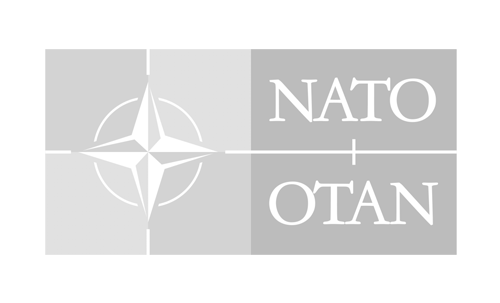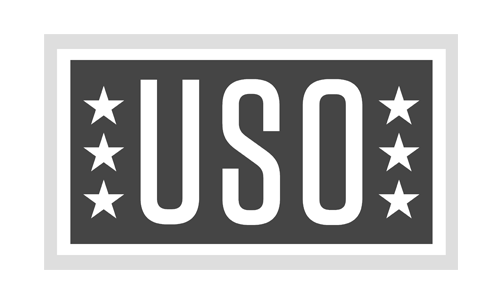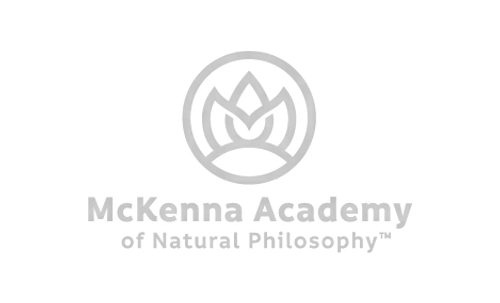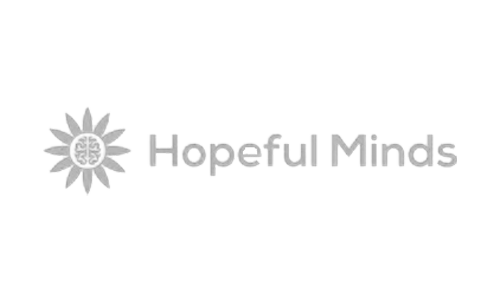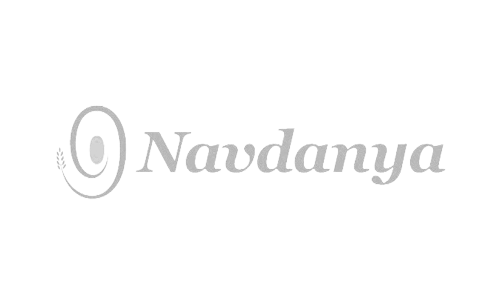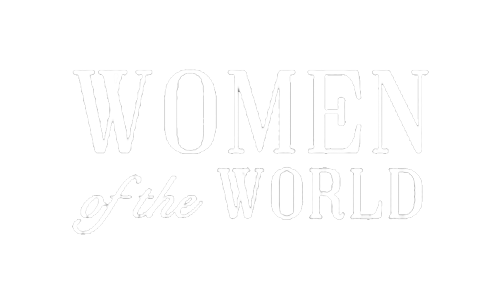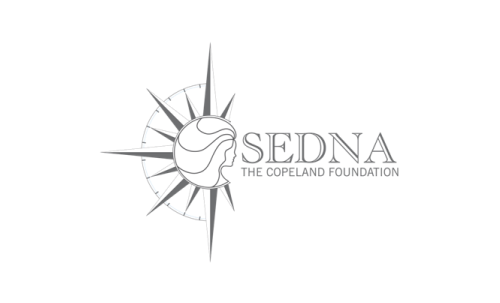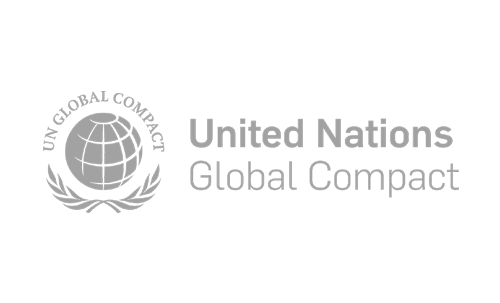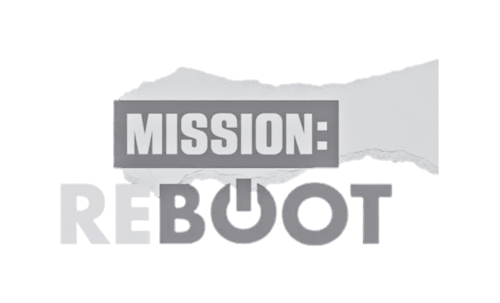APPS
APPS


Featuring stories of new scientific research on human flourishing that translate these basic discoveries into practical tools. Bringing a mix of curiosity, compassion, and creativity that will appeal to all ages, journalist Richard Sergay and acclaimed writer/producer Tavia Gilbert shine a spotlight on the human impact at the heart of a cutting-edge social and scientific research project. This project was made possible through the generous support of a grant from Templeton World Charity Foundation.
More with Templeton: Closer To Truth, Stories of Impact: The Video Series, Templeton Universe
This season on Stories of Impact, we look through a new lens at old traditions, see new generations explore new solutions, and search for new ways to help kids make sense of modern life.
Over the last seven seasons, Stories of Impact has brought listeners conversations about the art and science of human flourishing. We've met luminary artists like dancer Judith Jamison, pioneering researchers like Dr. Jane Goodall, and national leaders like Freddy Mutanguha. In this year's programming, we bring you a whole new series of inspiring stories, like our conversation on how ancient practices continue to have a purpose today.
We learn how citizens are solving systemic problems like violence, and find hope in hearing about the research that will help kids in Colombia have a brighter future. We hear from educators working to increase agency and choice in kids’ classrooms, so that students are empowered to follow their individual spark of curiosity.
In every episode, we travel the world and dive deep into the intersection of spirituality and science on Stories of Impact, The American Writing Awards Science Podcast of the Year, generously supported by Templeton World Charity Foundation.
I'm writer, performer, producer Tavia Gilbert, and along with journalist Richard Sergay, every first and third Tuesday of the month, I'll bring you a new conversation on the Stories of Impact podcast, which offers uplifting explorations about the art and science of human flourishing. You can find the award-winning Stories of Impact podcast wherever you find the podcasts you love. Be sure to follow us so you don't miss an episode.
Born and raised in Medellin, Colombia, Dr. Tobón grew up in the 80's and 90's while the country surged with gang violence. As a kid, young Santiago was lucky to have enough privilege to keep himself safe and to give him a promising future of education and employment.
But there was no denying the impact that gang violence was having on kids — kids his own age. When he graduated from college with a degree in computer science, and got a job working in rural economic development, it was the first time he saw gang activity up close. For four years he witnessed violent conflict around the local drug trade.
Dr. Tobón started to dream of finding a way to stop gang violence and stop kids from sacrificing their lives to gang culture. He wondered how kids could instead find a path to a flourishing future? What could he do to keep gangs from bringing in hundreds of new teenage recruits each year? He decided to arm himself with PhD in economics.
Read the transcript of this episode.
Meet Dr. Mostafa Salari Rad, a postdoctoral fellow in psychology at the New School in New York City. Born in Iran in a Shia Muslim practicing family, he always had an interest in philosophy, psychology, social science. He wondered why people behaved the way they did, why countries developed the way they did, and later, as a high school student in Japan, when he was the only person observing Ramadan, he started asking deeper questions about the self control he had to exert to fast, as Ramadan asked of him, from sunrise to sunset. Perhaps the first time, Dr. Rad questioned, why am I doing this? Why isn’t anyone else doing this? What does this ritual mean?
When Dr. Rad decided to pursue a PhD in psychology, he focused his research on the fasting during the Islamic holy month of Ramadan, which the vast majority of the 1.8 billion Muslims worldwide observe. He wanted to find out more about the psychological, behavioral, and social benefits of fasting, and he especially wanted to better understand the self-control Ramadan requires. Listen and learn more.
Read the transcript of this episode.
In today's episode, we continue the discussion about fasting, as we hear from two scholars about research focusing on what is considered the holiest day of the year in Judaism: Yom Kippur. During the 25-hour Day of Atonement, observant Jews focus on deepening their relationship with God through prayer, community connection, and by fasting. Over the last three years, two Arizona State University researchers, professor of psychology Dr. Adam Cohen and associate research professor Dr. Kathryn A. Johnson, have been on a scientific mission to understand the universal impact of the fasting ritual, asking whether abstaining from food and drink during this Jewish High Holiday deepens virtue, social cohesion, and personal well-being.
Read the transcript of this episode.
Today we’re back in conversation with Dr. Adam Cohen, social psychologist and psychologist of religion at Arizona State University, who shares another research project that explores the way religious ritual connects participants more deeply not only with faith, but with community — this time, not through the practice of abstaining from food, but from breaking bread together.
Dr. Arielle Levites, Managing Director of the Collaborative for Applied Studies in Jewish Education and a Research Assistant Professor in the Graduate School of Education and Human Development at George Washington University had the same idea — that observing Shabbat wasn’t just a nice idea, it was a practice with measurable impact.
So the team designed a study, enlisting the participation of Aliza Kline, founding President and then-CEO of OneTable, an organization designed to help young Jews develop independence and confidence in observing the ritual of Shabbat dinner in their homes.
The question they wanted to answer? Does Shabbat dinner as a spiritual practice increase social connectedness?
Today we wrap up an enlightening series of conversations on religious ritual as a pathway to human flourishing with Dr. Anna Corwin. When Dr. Corwin became connected to the Diverse Intelligences initiative and researchers who collaboratively examine the variety of intelligence on the planet or beyond, whether plant, animal, human, alien, or artificial, she was inspired to see new possibilities for her own unique research interest, and to embark on a scientific exploration into spiritual intelligence.
When we spoke recently with Dr. Sean Westwood, associate professor of government at Dartmouth College and the director of the Polarization Research Lab, we knew we wanted to share the conversation with you as quickly as possible, because it speaks so directly to the current moment. Dr. studies American politics and how partisan conflict manifests in the United States, its consequences and its origins.
Read the transcript of this episode.
We’re back this episode for our second timely interview focusing on political polarization, wrapping up in conversation with Dr. Kurt Gray, professor of moral psychology and neuroscience at UNC Chapel Hill, and the director of the Deepest Beliefs Lab in the Center for the Science of Moral Understanding. Moral psychology is the descriptive understanding of our moral judgments, or concern with not just how people should make moral decisions, but how they actually do. Why does this matter?
In Dr. Gray’s words: "To understand our contentious and divided political moments where people are unwilling to discuss politics across the aisle or entertain even that the other side is a reasonable human being in the way that you feel about yourself and your own side.
We do disagree already when it comes to politics. But where does this political disagreement come from? …Once you get that, then you can understand where this political animosity comes from. But it's really a question of moral disagreement. And for that you need to understand our moral psychology.”
Read the transcript of this episode.
Is science fundamentally in opposition to religion, or do they just have little to do with each other? Is the way you engage with science and religion in your life informed by your core beliefs, or are your core beliefs informed by them? Do you think it's scientists or religious experts, or both, or neither, that are best equipped to help humans explore the meaning of life?
People might find these questions to be provocative or controversial. But our guest in today's episode, science educator and researcher Dr. Berry Billingsley, was raised in a family culture of curiosity, so she's been asking these sorts of really big questions all her life.
Now a professor in Education at the University of Swansea and the former Director of the Learning about Science and Religion Centre at Canterbury Christ Church University, Dr. Billingsley, as devoted as she has been to young people's science education throughout her career as a researcher, has built a body of work critiquing the way science is traditionally taught and breaking down the siloes between religious education and science education classes.
Read the transcript of this episode.
This week we're back with the second part of that episode, exploring another Big Questions in the Classroom initiative, in conversation with seven educators who are advancing Dr. Billingsley's work through a collaborative research project called Religion and Worldviews. Together, these research leaders are not only introducing innovative ideas into traditional curriculum, but they're educating the educators in how to teach them.
Why does the classroom need a refresh? Let’s discover together! Our guests include educators Dr. Michael Reiss, Dr. Trevor Cooling, Stephen Pett, Sarah Lane Cawte, Gillian Georgiou, Maureen Cutler, and Katie Gooch.
Read the transcript of this episode.
Today, we’re excited to bring you a hopeful and constructive perspective on modern technology — a story about gamified tech that’s positively transformative.
Dr. Eugene Ohu is a native Nigerian who grew up in this complex nation observing painful divisions, stereotyping between the ethnic groups, and deep discrimination. He wondered, is it possible to have a united Nigeria?
Dr. Eugene Ohu is a native Nigerian who grew up in this complex nation observing painful divisions, stereotyping between the ethnic groups, and deep discrimination. He wondered, is it possible to have a united Nigeria?
Read the transcript of this episode.
Over the last five years, we’ve explored stories with countless scientists whose thoughtful research reveals the way they’re answering big questions and solving big problems. We’ve shared conversations about studies done in labs and out in the field. Well, today’s field is Brazil. The labs are crowded city streets and verdant jungles. And the big question? What happens when you stop fearing and fighting against diversity, and start exploring and embracing difference? The researchers we learn from today, anthropologists Kurt Shaw and Rita da Silva, have found their answers through play — in music, drumming, dance, martial arts, food, ritual, and shared experiences in Brazilian wise, but marginalized, communities.
Read the transcript of this episode.
Today’s episode is full of beauty, hope, healing, community, and connection. In fact, it might be one of the most feel-good, good news stories we’ve ever gotten to tell. Meet Dr. Richard Lerner and Dr. Elizabeth Dowling, Director and Deputy Director of the Institute for Applied Research and Youth Development at Tufts University. Like many great teachers, they can tell you to look for people who care about kids like that in school — and one school in particular: Thanda, named after the Zulu word for love. Together, these researchers are highlighting the unique curriculum and culture of Thanda, one of the most thriving and successful schools they’ve ever encountered. Today we learn all about this remarkable school, located in rural South Africa, which is run by some of the perhaps most irrationally caring educators on the planet.
In the societies in which most of us live, our capitalist economic systems run on transactions—on individual sales of goods and services. But are you aware that there are other infrastructures of support and help that meet our need for information, connection, even love? We live with gift economies that already enrich our lives. We start our story with professional disruptor, clinical psychologist and entrepreneur Dr. Glen Moriarty, founder of one of the most innovative, free global mental health systems on the planet—a community called Seven Cups, where over 570,000 trained volunteer listeners provide emotional support to users in 189 countries in 140 languages.
Dr. Moriarty and his research partner, Dr. Sarah Schnitker, professor of psychology and neuroscience, principal investigator of the Science of Virtues Lab, and director of the Baylor Research and Growth in Human Thriving Science Center at Baylor University in Waco, Texas are turning assumptions upside down about the systems in which we connect, heal, and thrive in the modern digital age.
Read the transcript of this episode.
When Coschool founder and CEO Henry May began his career as a teacher, he learned that his job was not just about enriching the mind, but the soul and spirit of a student as well. He saw that part of excellence in education was helping school communities thrive despite painful circumstances. Nicole Bruskewitz, Coschool’s Director of Education, was also a problem solver who’d questioned inequality and education access since childhood. When May and Bruskewitz were introduced to the pioneering work of Dr. Marvin Berkowitz, they thought that his unique educational model could be particularly transformative across their adopted home country of Colombia’s entire public educational system. They dreamed of reaching hundreds of schools and entire cities across Colombia — and beyond, educating, promoting character development, and helping heal collective trauma. Hear about the impact of their work in today’s episode.
Read the transcript of this episode.
The world today is grappling with enormous challenges: how will we allow artificial intelligence to impact society? How hot will we let the planet get? How do we stop the conflicts making life for so many so painful? We are not powerless. These are decisions that humans are capable of making, though no one person can solve such existential questions on their own. To solve the world’s problems, to take care of each other and create a better future, we have to decide to work with each other to do it.
Dr. Bahar Köymen, senior lecturer of psychology, communication and human neuroscience at the University of Manchester, studies the emergence and development of human reasoning. As a developmental psychologist, to better understand how humans develop collective reasoning, Dr. Köymen is taking an unusual approach: studying children.
“If you ask most people what's the most morally profound, significant, meaningful thing in your life, they'll say something about the way that they have been taking care of children or parents or friends, or people who are ill, or spouses. There's something very distinctive about it. It's just intrinsic to the human condition is that we're going to be babies, we're going to be ill, we're going to be old. That just comes with the territory of being human, and care seems to be a way of allowing us as a community, as a species to negotiate these kinds of transitions, to make the transitions work.”
Dr. Alison Gopnik is a professor of philosophy and psychology at the University of California, Berkeley, and a leading researcher on caregiving. Today, we explore her international research project designed to “think about the way that we care for other people.”
Read the transcript of this episode.
We begin Season 7 with a friend of the podcast — Dr. David Addiss, who listeners will remember from an emotional episode last year about the role of compassion in healthcare. Dr. Addiss is back for another evocative discussion about compassion, and he’s joined by his research colleagues Heather Buesseler, Dr. Liz Grant, and Dr. Corinne Reid. In this conversation, these four public health experts discuss their research findings around the role of compassion in the international effort to meet the United Nations’ Sustainable Development Goals.
Read the transcript of this episode.
In our last episode with Dr. David Addiss, Heather Buesseler, Dr. Liz Grant, and Dr. Corinne Reid, we explored the role of compassion in the United Nations’ Sustainable Development Goals, and learned that the SDG’s were motivated by a compassionate desire to end global human suffering across a variety of sectors. This week we’re back with these four researchers, as they offer more personal insight about what draws them to study the science of compassion. This week the researchers’ objective is to encourage all of us to think about where we can make greater space for compassion in our own lives.
Read the transcript of this episode.
Artificial intelligence is the ability of machines to perform tasks, such as learning and problem-solving, that are typically associated with human intelligence. And every single aspect of how we live our lives may ultimately be transformed by this technology. At the start of this year, it seemed as though AI shifted from a relatively niche technology known to industry insiders, into a subject that had suddenly captured broad public consciousness. Especially as ChatGPT burst on the scene as a tool available to virtually anyone, AI became a source of fascination, anxiety, and confusion.
It’s happening fast. It’s on everybody’s mind.
So what exactly is AI?
Read the transcript of this episode.
Today, we meet Dr. Nap Hosang, a Jamaican-born obstetrician and gynecologist with a long, distinguished career focused on preventing unintended pregnancies in the United States and globally. After decades of service in healthcare, Dr. Hosang has begun a new chapter of his career as the co-founder and CEO of Cadence Health, whose mission is to give people who don't want to become pregnant access to safe, effective, affordable contraceptives, without a prescription, wherever those people are located. Listen in to learn why Dr. Hosang believes Cadence’s success in the US will make a global impact.
Read the transcript of this episode.
It’s Thanksgiving week in the United States, and this Thursday, many of us will be with friends and family for the kick-off to six weeks of holiday cheer. But for so many people in America, the holidays can be a very lonely time. Loneliness and disconnection have consequences not only for individual health, but for the health of the nation.
Dr. Emiliana Simon-Thomas is the Science Director at UC Berkeley's Greater Good Science Center, which tracks cutting edge research studies that focus on how important our relationships, our tendency towards generosity and cooperation, and our sense of mattering or contribution to our communities are to our health and wellbeing over the course of our lives. She wants to understand the science of loneliness.
Read the transcript of this episode.
Last time you heard from us, Dr. Emiliana Simon-Thomas shared her research on the complexity of the loneliness epidemic in America today, and what we all can do to feel less lonely. Something she said — “Everyone's happiness matters to my happiness” — stuck with us, and became the springboard for this episode. Today, together with psychology researcher Dr. Timothy Lomas at Harvard University’s Human Flourishing Program, we dive deep into the question of the interdependent nature of happiness and flourishing. Not only that, Dr. Lomas also invites us to ask who — and what — deserves to flourish.
We’re also celebrating the life of our friend Dr. William Powell, who passed away just before Thanksgiving. Dr. Powell’s American Chestnut Tree episode was one of our favorites of last year. You can listen today, or come back in two weeks, when we rerun that conversation as the last episode of our year of Stories of Impact.
Read the transcript of this episode.
We’re celebrating the life of our friend Dr. William Powell, who passed away just before Thanksgiving. Dr. Powell’s American Chestnut Tree episode was one of our favorites of last year.
This episode is an inspiring story about how bringing together vision, community, and cutting-edge science can make the impossible possible. It’s a story about American history, climate, globalization, and hope. It’s the story of the American Chestnut Foundation’s efforts to do something never before done: To restore a tree that is functionally extinct — the American Chestnut tree. You’ll hear from Rex Mann, retired from the U.S. Forest Service and now a chestnut evangelist, and ACF’s lead collaborating scientist, Dr. William A. Powell, professor at SUNY College of Environmental Science in Forestry.
Read the transcript of this episode.
Before we ended 2023 we met two researchers, Dr. Emiliana Simon-Thomas and Dr. Timothy Lomas, who shared their research on human flourishing, and each touched on the importance of human connection and relationship as an antidote to loneliness. In our first episode of this new year, we continue that conversation, this time by exploring the unique role of chaplains, and how their purpose is to keep the people they serve from going through painful times, alone.
To guide us on this journey, we are joined by Dr. Wendy Cadge, the Barbara Mandell professor of Humanistic Social Sciences at Brandeis University and founder of the Chaplaincy Innovation Lab, which supports, educates, and expands the vision of chaplains everywhere.
Read the transcript of this episode.
War and conflict is raging across the globe. From Europe and the Middle East to Africa and the Americas, divisions between and within nations are leaving civilians dead and displaced.
Northern Ireland has seen its fair share of violence and bloodshed since its founding in 1921. Although the Good Friday peace agreement was signed more than 25 years ago, the peace process is still a work in progress. This week, however, we explore a ground-breaking research project led by Dr. Jocelyn Dautel, an American researcher and senior lecturer at Queen’s University Belfast, into how Northern Ireland’s past continues to impact the way young people consume and share “truths” about their nation’s history. Researchers are hopeful that if Northern Ireland can to evolve beyond sectarian division, the country — and its youth — could serve as a global model of peace and reconciliation.
Read the transcript of this episode.
This week we're bringing back one of our favorite ever episodes. Today, we hear a fascinating and inspiring conversation having to do with the flourishing of young South Africans.
Today’s episode features Richard’s conversation with Nina Callaghan, former Associate Director and current South African Chair of Children’s Radio Foundation. In a post-apartheid country still suffering the social, psychic, and economic wounds of decades of institutionalized racial segregation, the very act of teaching these youth basic journalism 101, including ethics, consent, and truth-telling, is a powerful healing act. Callaghan discusses her work with the youth reporters and their two-year exploration of the concept of Ubuntu—a Nguni Bantu term often translated as “I am because we are.” Callaghan shares the program’s outcomes, both expected and unexpected.
Learn more about the Children’s Radio Foundation.
In the dozens of episodes we’ve shared with you over the last four years, you’ve heard stories of experts examining the science behind everything from bees to whales, video games to dance, education systems to communication networks. Today, we're zooming out further, speaking with researchers who are exploring ways to improve how we do science and how we cultivate and educate better scientists.
When you think of a scientist, what image comes to mind? Do you imagine a genius laboring solo in a lab, displaying little emotion as they logically analyze data? Let’s challenge that stereotype — scientists are anything but dispassionate.
Read the transcript of this episode.
Artificial intelligence is proliferating and entering new industries every day. And while it’s been used in healthcare for 50 years, researchers continue to look for new ways to use it to improve care.
Today, we’re back in conversation with a team of researchers, including a philosopher, a neuroscientist, and a computer scientist. This trio might be familiar to long-time listeners from an episode a few years ago, when we explored the question of whether artificial intelligence could be programmed to be moral. Over the last five years, this research team has been studying how to use AI as an assistive tool in allocating kidneys to patients needing organ transfers. It’s a project partly funded by OpenAI, the company behind ChatGPT.
Though the project is focused on integrating AI into evaluations of who gets a kidney transplant, the team is using that particular problem as the lens to explore more broadly the ethics of AI in decision-making. They’re asking whether it’s possible to imbue machines with a human value system, in what ways artificial intelligence can be employed to help humans make moral decisions, and how to ensure that when AI is involved in decision-making, the process retains humanity.
Read the transcript of this episode.
Any sentient, soulful being paying attention to the way humans are treating other humans has been feeling these hard times. But sometimes, amidst all this darkness, humor can offer a little bit of hope.
Today we're back with a friend of the podcast, Dr. Erica Cartmill. You might remember her from past episodes as a leader in the science of diverse intelligences, the multi-disciplinary, open science study of cognition, whether it's found in humans, animals, plants, machines, or anywhere else. This time, we’re talking with Dr. Cartmill about the violation of expectations as a feature of primate intelligence, or in more down-to-earth terms: Funny monkeys. Actually, monkeys isn't technically right — it's actually apes.
What Dr. Cartmill and her fellow researchers have discovered, in a study they call “The Humor Project," is that humans and apes share a lot of traits, including what we think is funny.
Read the transcript of this episode.
Today we're back for another exploration of the magnificence and mystery of the universe — talking with three researchers who share not only a passion, but a respect for the species in their decidedly non-human, wildly intelligent subjects of research. First we meet Dr. Paco Calvo, a renowned cognitive scientist and professor of philosophy of science at the University of Murcia in Spain. Dr. Calvo has been called a philosopher of biology, who believes that by studying plant cognition, humans might be able to learn a little bit more about ourselves. And we hear from neuroscientist Marcelo Magnasco, a biophysicist professor and head of laboratory at Rockefeller University, New York, who works closely with Dr. Diana Reiss, professor of psychology at Hunter College and the director of the animal behavior and conservation graduate programs. Together, this team explores octopus intelligence.
Read the transcript of this episode.
Today we bring you a follow-up story about revolutionary education in Northern Ireland, this time exploring the impact of teaching young children to not just tolerate difference and diversity, but to seek it out, embrace it, and celebrate it.
Our episode explores the history and legacy of Lough View Integrated Primary and Nursery School, a school founded 30 years ago to intentionally create a space where diverse points of view and religious and social practices could come together, and what’s remarkable is that this vision came to life fully five years before the Good Friday Accords birthed a fragile national peace.
Lough View was established in Belfast by a group of parents who didn’t want to send their children to a segregated school that would perpetuate the bias and prejudice that had fed the decades of violence between Protestants and Catholics, but instead, created a totally different paradigm for their children, and their children’s education.
Today we’ll hear from students and educators at Lough View, who tell us how this radical education has impacted classroom culture and individual lives, and how it might contribute to peace-building across the nation, and potentially, the world.
Read the transcript of this episode.
In today’s episode, we hear from leader and luminary Dr. Jane Goodall, who has, for decades, made significant contributions to not only the scientific world, but to, arguably, the entire planet.
When 26-year-old, British-born Jane Goodall began field studies of primates in Tanzania in July 1960, she was the first researcher to observe chimpanzees in the wild, and she remains the world’s foremost expert on chimpanzees. Her rigorous and creative approach quickly gained the attention of the National Geographic Society, which awarded her first grant, and has passionately championed her work in the decades since. Despite never getting a college degree, Dr. Goodall was accepted at Cambridge University, earned her PhD in ethology in 1966, and spent decades in the Gombe Stream National Park studying chimpanzee communities, eventually becoming the only human to ever be accepted into a chimpanzee society.
Today, at the age of 90, Dr. Goodall is a legendary conservationist, galvanizing educator, UN Messenger of Peace, and an inspiring writer and public speaker. Her curiosity, empathy, wisdom, protective heart, and unshakeable hope reflect the best of humanity, and even though today’s conversation is short, you’ll hear all of those exemplary characteristics embodied in her voice and story.
Read the transcript of this episode.
In our last episode, we spent time with the extraordinary Dr. Jane Goodall, primatologist, writer, speaker, and conservationist. Dr. Goodall previewed today's episode, featuring the three recipients of the Wildlife Intelligence Project, a $2.7 million joint initiative between National Geographic Society and Templeton World Charity Foundation designed to support "three early-career scientists…whose passion for and discoveries in wildlife field research have the potential to illuminate unknown wonders of our world.” We're proud to be in conversation with cognitive ecologist and bee researcher Dr. Felicity Muth, primatologist Dr. Tiago Falótico, and behavioral ecologist and biologist Dr. Mauricio Cantor.
These three National Geographic Explorers all study animal cognition, but how they do it, and their objects of study — bees, capuchin monkeys, and dolphins — varies. What that shows, as you’ll hear about today, is that intelligence can take many forms, and it’s only once we look past our anthropocentric definitions of intelligence that we can truly understand and appreciate the complexity and beauty of nature.
Read the transcript of this episode.
Today’s episode offers a powerful example of courage, peace, and forgiveness. Our story looks back thirty years, to one of the most violent periods in modern history — the genocide against the Tutsi — and to the resilience and wisdom of the Rwandan spirit and heart.
On April 6, 1994, beautiful Rwanda, known as the Land of a Thousand Hills, became a hell on Earth. Between April and July 1994, hundreds of thousands of Rwandans were slaughtered in a horrifying frenzy of state-sponsored terror.
Freddy Mutanguha, an ethnic Tutsi, was just eighteen years old when the genocide began. Today, Freddy shares the story of his unimaginable losses, the miracle of his survival, and his life’s work nurturing peace, forgiveness, and reconciliation in his country and across the world.
Read the transcript of this episode.
In our last episode, we met Rwandan leader Freddy Mutanguha, who shared his remarkable journey to finding meaning and forgiveness after dozens of his family members, including his parents and sisters, were murdered during the genocide against the Tutsis in 1994. Freddy’s powerful and timely testimony underscored the importance of truth, remembrance, and community organizing in helping genocide victims — and perpetrators — find healing and peace.
Today we hear again from Freddy Mutanguha, and from Dr. Elizabeth Dowling, about what she’s learned from her research collaboration with Freddy and his team at the Aegis Trust, which works to prevent genocide and mass atrocities worldwide, and its projects supporting reconciliation across Rwanda, including the Kigali Genocide Memorial. Dr. Dowling shares how a nation with a recent history of polarization and violence has become a model for peace-making.
Read the transcript of this episode.
Over our last couple of episodes, we’ve told the inspiring story of decades of positive transformation the nation of Rwanda has sustained since the catastrophic 1994 genocide against the Tutsis. We learned that Rwanda’s peacemakers have for decades nurtured a culture of reconciliation and resilience, cultivating communities where citizens flourish.
Deep healing and renewal like that can come only after conflict ends — it can’t happen in the midst of war. In order for children, families, and elders to have a real chance to recover from trauma in body and soul, violence has to cease. But the reality is today, hundreds of millions of people live in the midst of ongoing conflicts, and their mental and physical health are undermined by the indiscriminate brutality of wars that may not end anytime soon.
Our guest today, Dr. Mark Jordans, is a professor of global mental health at the University of Amsterdam and King's College London, and Director of Research and Development at War Child, which, for thirty years, has worked to care for children affected by wars. He is not waiting for peace, but instead, is committed to doing everything he can to help children caught in the middle of violence cope with the crises they face.
Read the transcript of this episode.
Today’s episode is our version of a back to school episode celebrating one of the coolest schools on the planet — the Diverse Intelligences Summer Institute (DISI). We’re back with four friends from Season 2 of the podcast to further explore Diverse Intelligences: Drs. Andrew Serazin, Erica Cartmill, Pranab Das, and Jacob Foster. These researchers tell us about their work to build a community of scientists who have come together every summer for the last five years to explore together different kinds of cognition, whether their specialty is plant, animal, human, or machine.
Read the transcript of this episode.
Today we bring you the voices of more members of the Diverse Intelligences Summer Institute (DISI) community — Dr. Amanda Seed, Dr. Cat Hobaiter, Dr. Dora Biro, Dr. Michael Muthukrishna, Dr. Kristin Andrews, and Dr. Tom Griffiths. They share some of their fascinating research that has been funded by Templeton World Charity Foundation grants. They talk about why they love what we affectionately call “adult summer science camp,” and why interdisciplinary conversations and collaborations about diverse intelligences are more important now than ever.
Read the transcript of this episode.
What if we told you that by the end of this unusual episode, you could find yourself thinking completely differently about the role of video games in the lives of children and teens, and that you might actually look forward to playing video games yourself, as a way to become a healthier, happier, and more resilient human being? Today, we’ll meet a team of researchers and video game makers from the Games for Emotional and Mental Health (GEMH) Lab — Director Dr. Isabela Granic, Co-Director Dr. Hanneke Scholten, and Creative Director Ken Koontz — who will change your perspective on gaming. Ready?
This week’s episode takes us to Kenya, where we meet Tom Osborn, community mobilizer, entrepreneur and research scientist, and Harvard psychology graduate. In his long list of accolades and successes, he is most recently co-founder and executive director of the Shamiri Institute. Shamiri’s innovative, interdisciplinary, youth-led caregiving model is increasing student levels of success and student mental health in schools in Kibera, the urban slums of Nairobi.
Read the transcript of this episode.
Today’s episode is all about the impact we can have when we make informed, ethical choices. It can be nearly impossible as a consumer to know where your clothes are coming from and to ensure that they were ethically and sustainably produced, from the spinner of the cloth to the dyer of the fabric to the person sewing the garment together. This is why Dr. Robert Handfield and Dr. MD Rejaul Hasan of North Carolina State University Poole College of Management are creating an Ethical Apparel Index, which will create transparency around apparel manufacturing for both consumers and investors. They’re hoping the EAI will promote human rights in the garment supply chain around the world.
Read the transcript of this episode.
Today’s episode features Templeton World Charity Foundation President Dr. Andrew Serazin and John Templeton Foundation President Heather Templeton Dill, as they discuss Sir John Templeton’s legacy while considering human flourishing at TWCF’s first-annual Global Scientific Conference on Human Flourishing.
We also hear from conference participants Maritza Trejo, Regional Director for Education Programs for Glasswing International in Central America, and Dr. Duncan Astle, a Programme Leader at the MRC Cognition and Brain Sciences Unit, University of Cambridge.
Read the transcript of this episode.
Have you ever been in a group of people, everyone focused on the same thing — a sports competition or a sermon or a performance — and you’ve had a feeling that you’re being transported or transformed by what you’re experiencing? It’s when you’re been a part of a collective moment of being that is so powerful and so meaningful that you forget about any self-consciousness or shyness or hesitation, and you feel swept up in what might be called celebration or rapture, or joy, or love.
There’s actually a term for those beautiful, resonant, collective experiences — collective effervescence. Today, we’re exploring the collective effervescence of Koolulam, “a social-musical initiative aimed at strengthening the fabric of society, centering around mass-singing events.” Featuring Professor of Psychology at the State University of New York, University at Buffalo, Dr. Shira Gabriel and Koolulam’s co-founders, Or Taicher, Michal Shahaf, and Ben Yaffet.
Music for this episode courtesy of Koolulam, featuring One Day and other choral works
Read the transcript of this episode.
The first of a special three-part series, this episode defines polarization and explores its causes and effects. Next, we consider what we can learn from the history of polarization in other countries, share the antidotes to polarization that research has uncovered, and finally, explain why it’s important to make a long-term investment in polarization research.
Today’s episode features researchers Jay J. Van Bavel and Dominic J. Packer, co-authors of The Power of Us: Harnessing Our Shared Identities to Improve Performance, Increase Cooperation, and Promote Social Harmony. We also hear from Alison Taylor, Executive Director at Ethical Systems, a research collaborative affiliated with NYU; Dr. Hahrie Han, Professor of Political Science and the Director of the SNF Agora Institute at Johns Hopkins University; Uriel Epshtein, Executive Director of the Renew Democracy Initiative; and Joshua Fryday, Chief Service Officer for the State of California with California Volunteers.
Read the transcript of this episode.
This the second of a special three-part series on polarization. In today’s episode, we consider what writers, researchers, and scholars say we can learn from the history of polarization in other countries and learn about some of their potential solutions for polarization.
Today’s episode features researchers Jay J. Van Bavel and Dominic J. Packer, co-authors of The Power of Us: Harnessing Our Shared Identities to Improve Performance, Increase Cooperation, and Promote Social Harmony. We also hear from Dr. Hahrie Han, Professor of Political Science and the Director of the SNF Agora Institute at Johns Hopkins University; Uriel Epshtein, Executive Director of the Renew Democracy Initiative; Joshua Fryday, Chief Service Officer for the State of California with California Volunteers; and Evan Mawarire, a Zimbabwean clergyman who founded #ThisFlag Citizen’s Movement.
Read the transcript of this episode.
This the conclusion of a special three-part series on polarization. In today’s episode, we hear some good news from three leaders of Templeton World Charity Foundation’s Listening and Learning in a Polarized World Initiative. Dr. Andrew Serazin, president of TWCF; Virginia Cooper, project lead; and Dr. Eric Marshall, Principal Advisor, celebrate the $20 million investment in exploring polarization, and share what innovative tools and solutions will be discovered during the five year open-science, interdisciplinary study.
Read the transcript of this episode.
In this episode of Stories of Impact, we’re listening to a session from the Templeton World Charity Foundation’s Global Scientific Conference on Human Flourishing, which took place last fall. The conference aimed to showcase the latest and most meaningful scientific advances in understanding how humans flourish across cultures and alongside innovative new tools and strategies. Today’s session is a discussion on climate change and other global challenges to human flourishing, featuring moderator Philip Ball, Dr. Katharine Hayhoe, Dr. David DeSteno, and Dekila Chungyalpa.
Read the transcript of this episode.
In this episode of Stories of Impact, we’re listening to a session from the Templeton World Charity Foundation’s Global Scientific Conference on Human Flourishing, which took place last fall. The conference aimed to showcase the latest and most meaningful scientific advances in understanding how humans flourish across cultures and alongside innovative new tools and strategies. Today’s session is a remarkable discussion on the human need for beauty and purpose in order to flourish, featuring a presentation by Dr. Dacher Keltner, musician ELEW discussing his approach to his art and performing for us on piano, and a panel with Dr. Frank Wilczek and Dr. Katherine Cotter, moderated by Dr. Philip Ball.
Read the transcript of this episode.
The Stories of Impact podcast is coming to you for the next two weeks for a special exploration of forgiveness. Long-time listeners to the podcast may recognize Dr. Everett Worthington, who returns to discuss the largest-ever scientific study of forgiveness in the world. He joins Ukrainian citizens and fellow researchers Dr. Liudmyla Shtanko and Dr. Sergiy Tymchenko, for these important and timely conversations. We will be honored to bring you these three courageous and thoughtful experts, and introduce you to their colleagues, as they discuss applying the science of forgiveness to their own pain and heartache, and share the findings of their research.
Read the transcript of this episode.
Today we bring you the first of a special two-part series that dives deep into the subject of forgiveness. Our guests include Dr. Everett Worthington, Science Director in a worldwide research project studying the REACH forgiveness method’s effectiveness in facilitating not only individual forgiveness, but community forgiveness, a study that he and several colleagues conducted across six sites, five countries, and four continents. We’ll also hear from two of those research collaborators today: Ukrainian citizens Dr. Liudmyla Shtanko and Dr. Sergiy Tymchenko, who were in the midst of the forgiveness research project when Russia began to wage war in their country. Dr. Shtanko and Dr. Tymchenko will open up about how they coped with the brutality being inflicted upon them, and how forgiveness played a role in their thinking and planning for a hopefully peaceful and free future.
Read the transcript of this episode.
Today is the second in a two-part series that explores the subject of forgiveness. We hear more about the ground-breaking, six-site, five-country, four-continent study of Dr. Everett Worthington’s REACH forgiveness method’s effectiveness. We’re joined in conversation with Dr. Tyler VanderWeele, project Research Director; Principal Investigator Dr. Man Yee Ho; and site directors Andrea Ortega Bechara (Columbia) and Dr. Shaun Joynt (South Africa). They describe the impact of the study on individual participants and their communities, how they hope to scale the study, and who they consider an exemplar of forgiveness.
Read the transcript of this episode.
Today, we’re speaking with Dr. Christopher Hays, the president of ScholarLeaders International and director of the Faith and Displacement Project at the Fundación Universitaria Seminario Biblio de Colombia. Dr. Hays explains how the Faith and Displacement Project is working with an established network of churches in Colombia to train people to help their fellow citizens who have been displaced from their homes due to political violence.
Read the transcript of this episode.
Today, we’re back with Richard’s fascinating interview with Lord Martin Rees, the UK’s Astronomer Royal and the co-founder of the Centre for Existential Risk at the University of Cambridge. Joining them in conversation are two of the Centre’s research associates, nuclear war expert Dr. Paul Ingram, and geohazards and geo-communications scholar Dr. Lara Mani. They discuss the Centre’s research around potential risks to civilization and life on Earth as we know it, from nuclear weapons to pandemics to natural disasters. And perhaps most importantly, they share what gives them a sense of hope — for the future of humanity and for the planet.
Read the transcript of this episode.
If you’ve been a long-time listener to the Stories of Impact podcast, you’ll expect by now to be surprised by the kinds of studies Templeton World Charity Foundation invests in. TWCF-funded projects are not only ground-breaking — they’re often “rule-breaking,” asking challenging questions often left untouched by other funders. Today’s story is about one of those cutting-edge scientific studies, one that explores the possibility of a paradigm shift in how educators not only educate students, but each other. The study we hear about in this episode is the kind of research project that Sir John Templeton himself would have enthusiastically embraced, one that sits at the intersection of science and religion, and is designed to tap into curiosity and passion for interdisciplinary and lifelong learning.
Meet Dr. Sibel Erduran, a professor of Science Education at the University of Oxford, and the leader of a research project guided by the TWCF mission to explore Big Questions in the Classroom. Her research brings together science educators and religious educators who learn with and from each other. It’s a project that aims to break down divides between the space of scientific and religious study, in order to discover what happens when the silos disappear. Dr. Erduran’s study explores how argumentation can help students bridge disciplinary divides to achieve deep understanding.
Read the transcript of this episode.
Today’s episode is all about medical professionals — the hardship, overwhelm, and burnout that pre-existed the pandemic and only got worse when it started. It's about research measuring the effectiveness of a program that offers healthcare workers the support they need to flourish, even in the midst of intensely stressful circumstances. And it’s about the positive impact the programs’ simple tools have made, not only in the lives of those first responders, but in the lives of their patients.
This is a hopeful story, led by Dr. Leandro Chernicoff, co-founder and Academic and Research Director of AtentaMente, a nonprofit based in Mexico City, which teaches social and emotional skills. We also hear from Dr. Mariana Gil-Veloz, pediatric infectious disease professional and AtentaMente Stress Toolbox instructor.
Read the transcript of this episode.
Today is our final episode of the sixth season of Stories of Impact, and Richard Sergay is back in conversation with Templeton World Charity Foundation President Dr. Andrew Serazin, looking back over the year of stories we’re just wrapping up, and looking a little bit ahead at what’s to come.
Read the transcript of this episode.
The birthright of every human being is not just to survive, but to thrive.
This year on the Stories of Impact Podcast, we bring you conversations about the science behind innovative tools that help human beings flourish. Join host Tavia Gilbert and journalist Richard Sergay to hear about the intersection of the science and spiritual practices that give life the deepest meaning and fulfillment.
Every first and third Tuesday, you’ll hear from global luminaries with expertise in psychology, art, theology, and more: the frontline workers of flourishing who are driving the achievement of a new vision of thriving health and well-being.
Season premiere September 7. Find us wherever you get your podcasts. Supported by Templeton World Charity Foundation.
Our new season begins with scientist, entrepreneur, and philanthropy leader Dr. Andrew Serazin, President of Templeton World Charity Foundation. Dr. Serazin discusses TWCF's latest initiative, the Grand Challenges for Human Flourishing, which will enable researchers to discover new knowledge, develop new tools, and launch new practices or interventions that make a lasting impact on human flourishing.
Learn more about the Grand Challenges for Human Flourishing initiative.
More about this episode.
Read the transcript of this episode.
Today, we’re delving into a discussion with Casper ter Kuile and Reverend Sue Phillips, two of the co-founders of Sacred Design Lab, which describes itself as a “soul-centered research and development lab.” If you’re thinking, “Wait, how can you do R&D on the soul?!”, you’ll want to hear what ter Kuile and Rev. Phillips have to say.
Rev. Sue Phillips is a graduate of Colgate University and the Episcopal Divinity School, and she has served as a Ministry Innovation Fellow at Harvard Divinity School. Casper ter Kuile holds a Masters of Divinity and Public Policy degrees from Harvard University, and also serves as a Ministry Innovation Fellow at Harvard Divinity School. His book, The Power of Ritual was published in 2020.
Learn more:
More about this episode.
Read the transcript of this episode.
In today’s episode, we hear from The Honorable Shirley Ann Jackson, the first African-American woman to lead a top-ranked research university — Rensselaer Polytechnic Institute — and Andreas Schleicher, Director for Education and Skills and Special Advisor on Education Policy to the Secretary-General at the Organisation for Economic Co-operation and Development, an intergovernmental economic organisation with 38 member countries who stimulate economic progress and world trade.
These two global leaders in education speak of nuanced, experiential, community-centered learning opportunities offered within a moral and ethical framework as a key component of human flourishing. Our guests offer their insights on how education can support students’ efforts to become the wisest, happiest, healthiest, and most capable version of themselves.
Learn more:
More about this episode.
Read the transcript of this episode.
Today, we hear about human happiness from two of the world’s foremost researchers on the subject: Dr. Laurie Santos and Dr. Arthur Brooks. Dr. Santos hosts The Happiness Lab, a podcast “that will forever alter the way you think about happiness.” She’s also a Professor of Psychology at Yale University and teacher of one of the most popular classes ever in Yale history: The Happiness Class, which tries to give students the keys to happiness and satisfaction. Dr. Brooks is a Harvard professor, social scientist, prolific bestselling author, and columnist at The Atlantic.
Learn more:
More about this episode.
Read the transcript of this episode.
In today’s episode, we delve into how humans flourish through music and listening with internationally acclaimed musician, composer, and bandleader Wynton Marsalis. At the age of 60, after a long, international career, Marsalis identifies not only as a solo artist and a group leader, but as an educator and a leading advocate of American culture.
Learn more:
More about this episode.
Read the transcript of this episode.
Today’s guest is international superstar dancer/choreographer Judith Jamison. In 1964, at just 21 years old, Jamison made her dance debut in New York with the American Ballet Theater. She soon joined the Alvin Ailey American Dance Theater, eventually becoming the company’s principal dancer, then its artistic director, and, since 2011, she’s been artistic director emerita.
Learn more:
More about this episode.
Read the transcript of this episode.
Today, we’re talking about a pursuit of well-being that impacts us all — climate health. Today’s guest is Mary Robinson, former President of Ireland and the first woman to hold that elected office and former United Nations Commissioner for Human Rights. Since Robinson’s tenure as Ireland’s President ended in 1997, she has continued to work tirelessly to promote gender equity, human rights, and, most recently and most intensively, climate justice. Robinson speaks about the interdependence of people, animals, and the environment, and the imperative that we safeguard the health of each in order to ensure a sustainable future for world citizens and our planetary habitat.
Learn more:
More about this episode.
Read the transcript of this episode.
Today, we’re in conversation about the act of listening. Our guests are researchers Netta Weinstein, Associate Professor in Psychology at the University of Reading, and Guy Itzchakov, an assistant professor in the Department of Human Services at the University of Haifa. Profs. Weinstein and Itzhchakov are part of a research team working to develop a scientific understanding of what listening is, what its benefits are, and why it matters so much to our well-being.
Learn more:
More about this episode.
Read the transcript of this episode.
Our guest today is Dr. Deepak Chopra, founder of The Chopra Foundation, a non-profit entity for research on well-being and humanitarianism, and Chopra Global, a modern-day health company at the intersection of science and spirituality. He is a world-renowned pioneer in integrative medicine and personal transformation, and the author of over 90 books translated into over forty languages. In addition to holding a number of positions at medical schools across the US, Dr. Chopra has been at the forefront of the meditation revolution for the last thirty years.
Today’s conversation explores the link between our minds and our physical health; between the way we decide to approach life, and the likelihood that we will flourish in our lives.
Learn more:
More about this episode.
Read the transcript of this episode.
This week we’re bringing you a conversation about human flourishing with Vint Cerf, a man globally recognized as one of the “fathers of the Internet.” In recognition for his extraordinary contributions to the creation of Internet technology, Cerf has been awarded a U.S. National Medal of Technology, the Turing Award, and the Presidential Medal of Freedom. And, drawing on his own experience with being hearing impaired, he’s also known as a leading advocate for technology to be made accessible to people with a variety of abilities. Cerf’s consideration of how humans can use digital technology to flourish is a natural extension of his lifetime of work as an engineer.
Learn more:
More about this episode.
Read the transcript of this episode.
This week we bring you a conversation with Dr. Angela Duckworth, pioneering professor of psychology at the University of Pennsylvania and the CEO of Character Lab, a nonprofit that advances science to help children thrive. She was named a MacArthur Fellow in 2013, and in 2016 published Grit, a book that explores what elements lead to success. She makes the case that achievement is not dependent on genius, but instead, on The Power of Passion and Perseverance: grit. Dr. Duckworth believes that grit is part of what allows humans to flourish.
Learn more:
More about this episode.
Read the transcript of this episode.
This week we hear from Dr. Agnes Kalibata, a Rwandan agricultural scientist and policymaker. Dr. Kalibata draws on her personal history growing up in a refugee camp to shape her work as both UN Secretary-General’s Special Envoy focusing on international food systems and the president of the Alliance for a Green Revolution in Africa. This leader uniquely offers her deep personal understanding of how communities and individuals can flourish when two of their essential needs — nourishing food and quality education — are met.
Learn more:
More about this episode.
Read the transcript of this episode.
This week’s episode highlights the relationship between religion, faith, and human flourishing. Our conversation today is with Steven Croft, Bishop of Oxford, Church of England, for whom a belief in God and human flourishing — both individual and societal — are inextricably linked.
More about this episode.
Read the transcript of this episode.
Today’s episode is a discussion of the intersections of religion, spirituality, and science, with Dr. Kenneth Pargament, Professor Emeritus at Bowling Green State University. Dr. Pargament was named in 2022 one of the 50 Most Influential Living Psychologists in the World, and his internationally-acclaimed research addresses the relationship between health and spirituality and religious faith.
More about this episode.
Read the transcript of this episode.
In today’s episode, we welcome Dr. David Addiss, an expert in public health and preventive medicine. Dr. Addiss has spent his career thinking not only about science, but about service. In his early career, he cared for the health of migrants in the San Joaquin Valley of California, then later worked for nearly two decades the Centers for Disease Control in the Division of Parasitic Diseases, where he focused on controlling and eliminating diseases found not in the United States, but in communities of neglected people largely in the tropics. Hear what inspired him to spend his career caring for the needs of underserved and neglected people.
Mentioned in this episode:
More about this episode.
Read the transcript of this episode.
In today’s episode, we welcome Dr. Brie Linkenhoker, founder of Worldview Studio, a collective of brain and behavioral scientists, human-centered designers, and multimedia producers who create innovative learning experiences. Dr. Linkenhoker is the recipient of grant funding from Templeton World Charity Foundation’s Grand Challenges for Human Flourishing program. Her ground-breaking research is centered on the stories we tell ourselves. Through the scientific research of personal narratives, Dr. Linkenhoker explores the influence of our personal story-telling on our behavior, well-being and achievement; how stories differ across cultures and generations; and how they change with meaningful intervention from families, mentors, and media.
More about this episode.
Read the transcript of this episode.
Today, we hear from Dr. Hafsat Abiola, native of Nigeria, President of the Women in Africa Initiative, Harvard-educated economist, expert in sustainable development, and civil rights and Democracy advocate. Dr. Abiola’s father, M.K.O. Abiola, was imprisoned after decisively winning the presidency in an election determined to be fair and free by Nigerian and international observers. Meanwhile her mother, Alhaja Kudirat Abiola, fought publicly for his release and for her husband’s freedom, until she was murdered in retaliation. Dr. Abiola has carried on her parents’ legacy in her pro-democracy activism and her work in the Women in Africa Initiative, “the world's leading international platform for the economic development and the support of African women entrepreneurs.” Subscribe to Stories of Impact wherever you listen to podcasts.
More about this episode.
Read the transcript of this episode.
What is culture? How is culture transmitted? And what is unique about human culture, compared to our closest animal species relatives? Today’s conversation with Dr. Cristine Legare, a professor of psychology at the University of Texas at Austin whose research focuses on the foundations of cultural intelligence, answers all these questions.
Read the transcript of this episode.
This episode is an inspiring story about how bringing together vision, community, and cutting-edge science can make the impossible possible. It’s a story about American history, climate, globalization, and hope. It’s the story of the American Chestnut Foundation’s efforts to do something never before done: To restore a tree that is functionally extinct — the American Chestnut tree. You’ll hear from Rex Mann, retired from the U.S. Forest Service and now a chestnut evangelist, and ACF’s lead collaborating scientist, Dr. William A. Powell, professor at SUNY College of Environmental Science in Forestry.
Read the transcript of this episode.
Today is our 20th and final episode of the Luminaries of Human Flourishing season on the Stories of Impact podcast. All season, we’ve been in conversation with artists, politicians, technologists, environmentalists, doctors, faith leaders, educators, sociologists, and other luminaries. And today we circle back to the beginning, in conversation with President of Templeton World Charity Foundation, biomedical scientist Andrew Serazin, whose focus on human flourishing opened the door for us to create this special series. We’re going to take a summer break before we return in the fall with a new year of programming, but before we leave this season, we wanted Dr. Serazin to share more about the genesis of TWCF’s Human Flourishing Initiative, and where the foundation is heading next. Here’s our friend, Dr. Andrew Serazin.
Read the transcript of this episode.
Imagine a state of being in which all the many dimensions of your life are good. Imagine health that goes beyond typical measures of physical and mental well-being, but expands to include life satisfaction, meaning and purpose, character and virtue, and thriving social relationships.
This spring, join producer Tavia Gilbert and journalist Richard Sergay for the fourth season of the award-winning Stories of Impact podcast. This season, we bring you explorations of how people throughout the world promote human flourishing; stories of human generativity, positivity, growth, and resilience.
Supported by Templeton World Charity Foundation.
Templeton World Charity Foundation President, Dr. Andrew Serazin, is back for another conversation with podcast host Richard Sergay. Dr. Serazin talks about human flourishing — what it is, and how TWCF hopes to spur discovery about it. Dr. Serazin shares his excitement about the foundation’s Grand Challenges for Human Flourishing program, born out of a specific strategy to discover new knowledge, develop new tools, and launch new innovations that make a lasting impact on human flourishing.
Discover how to be a part of the Grand Challenges for Human Flourishing.
Learn more about Dr. Andrew Serazin.
More about this episode.
Read the transcript of this episode.
Today we hear from Dr. Arthur C. Brooks, Professor of the Practice of Public Leadership at the Harvard Kennedy School and Professor of Management Practice at the Harvard Business School. He’s also the former president of the American Enterprise Institute, a leading public policy think tank. You may be familiar with Brooks from his work as a writer — he’s the author of eleven books, including the national bestsellers Love Your Enemies and The Conservative Heart, a columnist for The Atlantic, host of the podcast “The Art of Happiness with Arthur Brooks,” and the subject of a 2019 documentary “The Pursuit.”
In this fascinating interview, Brooks discusses democratic capitalism, why the bottom 30% — those historically shut out of economic opportunity in the United States — are our country’s greatest untapped assets, and the gift of a pen from the Dalai Lama.
Learn more about Dr. Arthur Brooks.
Mentioned in this episode:
More about this episode.
Read the transcript of this episode.
Today, we hear a fascinating and inspiring conversation having to do with the flourishing of young South Africans. Today’s episode features Richard’s conversation with Nina Callaghan, former Associate Director and current South African Chair of Children’s Radio Foundation. In a post-apartheid country still suffering the social, psychic, and economic wounds of decades of institutionalized racial segregation, the very act of teaching these youth basic journalism 101, including ethics, consent, and truth-telling, is a powerful healing act. Callaghan discusses her work with the youth reporters and their two-year exploration of the concept of Ubuntu—a Nguni Bantu term often translated as “I am because we are.” Callaghan shares the program’s outcomes, both expected and unexpected.
Learn more about the Children’s Radio Foundation.
More about this episode.
Read the transcript of this episode.
Today’s episode highlights Richard’s conversation with Dr. Everett Worthington. Dr. Worthington is Commonwealth Professor Emeritus at Virginia Commonwealth University. For the last 30 years, Dr. Worthington has been studying forgiveness, and he has written more than a dozen books on the subject. In 2001, he developed the pioneering REACH Forgiveness method, which has helped thousands of people—including himself—reap the mental and physical benefits of forgiveness. Learn more about Dr. Everett Worthington and the REACH Forgiveness method.
More about this episode.
Read the transcript of this episode.
How can we listen to people we don’t agree with? Rebuild trust in an era of “fake news” and “alternative facts”? Create social cohesion, cooperation, and healthy, safe, inclusive societies?
If you find yourself asking, “What are our rights as citizens, and what are our responsibilities?,” you’ll want to join journalist Richard Sergay and producer Tavia Gilbert for Season 3 of the Stories of Impact podcast, which explores the timely and vital question of what it means to be a citizen in a networked age. In our third season, we are in conversation with some of the world’s leading scholars who explore questions of citizenship—listening, privacy, decision-making, and more. The Stories of Impact podcast delves into the big questions of meaning, purpose, and truth. It is made possible through the generous support of a grant from Templeton World Charity Foundation.
In this episode, we hear from Dr. Andrew Briggs, a professor of nanomaterials at the University of Oxford, and Dr. Dominic Burbidge, a lecturer in politics at the University of Oxford and director of the Canterbury Institute. Along with a team of scholars, their study of citizenship in a networked age has led to a carefully crafted report, including seven recommendations in support of their Agenda for Rebuilding Our Civic Ideals.
Learn more about Citizenship in a Networked Age and the Agenda for Rebuilding Our Civic Ideals.
Mentioned in this episode:
More about this episode.
Read the transcript of this episode.
Today’s conversation features three intersecting perspectives on the topic of citizenship in a networked age. We’ll hear from Vint Cerf, Google's vice president and chief Internet evangelist, and one of the world’s recognized “fathers of the Internet”; Nuala O’Connor, former president and CEO at the Center for Democracy and Technology; and Michael Wear, a strategist, speaker, and practitioner at the intersection of faith, politics, and public life. Each of them adds dimension to our podcast’s ongoing discussion of the direction of developing technologies, governmental policy and online engagement, and the moral facets of civic participation.
Learn more about Vint Cerf, Nuala O’Connor and the Center for Democracy and Technology, and Michael Wear.
More about this episode.
Read the transcript of this episode.
As we explore our season focusing on citizenship in the networked age, journalist Richard Sergay explores the rights and responsibilities of being a citizen in the digital era, the individual and community strengths inherent in healthy citizenship, and the threats to our future without it. Today’s conversation is with Sir Paul Collier, a professor of economics and public policy at the Blavatnik School of Government, University of Oxford. Professor Collier is a world-renowned economist and a best-selling author, including The Future of Capitalism: Facing the New Anxieties, and his latest release, with John Kay, Greed is Dead: Politics After Individualism.
Mentioned in this episode:
More about this episode.
Read the transcript of this episode.
Today, host Richard Sergay speaks with Baroness Onora O’Neill, Professor Emeritus of Philosophy at Cambridge University. Prof. O’Neill, whose work has focused on international justice and the roles of trust and accountability in public life, discusses the value of privacy in a time of surveillance capitalism, human rights after the digital revolution, and the importance of listening as a civic virtue.
Mentioned in this episode:
More about this episode.
Read the transcript of this episode.
Today’s episode features a conversation with Colin Mayer, Peter Moores Professor of Management Studies and the former dean at the Saïd Business School at the University of Oxford. Prof. Mayer speaks to host Richard Sergay about the role of business institutions in building resilient and cohesive communities, as well as the necessity of trust in whether civilization itself will be sustained.
More about Colin Mayer and his published works, including Prosperity: Better Business Makes the Greater Good
Mentioned in this episode:
More about this episode.
Read the transcript of this episode.
Today’s conversation is with David O’Brien, Assistant Research Director at the Berkman Klein Center for Internet and Society at Harvard University. Prof. O’Brien talks to Richard about how we as citizens can bring our democratic values to bear on social media platforms; the role privacy plays online in allowing democracy and democratic citizenship to flourish; and more.
More about David O’Brien and the Berkman Klein Center for Internet and Society
Mentioned in this episode:
More about this episode.
Read the transcript of this episode.
Today, Richard is in conversation with Dr. Filippo Trevisan, assistant professor at the School of Communication and Deputy Director at the Institute on Disability and Public Policy at American University. Dr. Trevisan talks about our evolving views on social media and offers insight on how we can use — and how we are already using — the Internet as a tool to improve representation in our democratic process.
More about Filippo Trevisan
Mentioned in this episode:
More about this episode.
Read the transcript of this episode.
The Stories of Impact Podcast presents stories of the scientific breakthroughs that fuel the human search for meaning, purpose, and truth — how lives are transformed by science. Season 2 focuses on Diverse Intelligences.
This project was made possible through the generous support of a grant from Templeton World Charity Foundation.
Host Richard Sergay speaks with Pranab Das, professor of physics at Elon University and Principal Advisor to the Diverse Intelligences Initiative from Templeton World Charity Foundation. Richard and Professor Das discuss the definition of intelligence and look at some of the DI projects we’ll hear more about this season.
Learn more about Pranab Das and the Diverse Intelligences Initiative
Learn more about Athena Aktipis and The Human Generosity Project.
Mentioned in this episode:
More about this episode.
Read the transcript of this episode.
Today’s episode features the collaborative exploration of Dr. Fred Sharpe, an expert in humpback whales and the Principal Investigator with the Alaska Whale Foundation, and Dr. Laurance Doyle, astrophysicist and Principal Investigator of the Search for Extraterrestrial Intelligence (SETI) Institute. Drs. Sharpe and Doyle are investigating humpback whales’ complex, long-distance communication with the aim of learning about how alien intelligences, if they exist, might attempt to transmit their messages through the cosmos.
Learn more about Dr. Fred Sharpe and the Alaska Whale Foundation, and Dr. Laurance Doyle and the Search for Extraterrestrial Intelligence (SETI) Institute
Mentioned in this episode:
More about this episode.
Read the transcript of this episode.
Today’s episode features the work of two scientists in seemingly unconnected fields of study: Dr. Andrew Barron, Associate Professor of Cognitive Neuroethology at Macquarie University in Sydney specializing in the honeybee brain; and his colleague, Dr. James Marshall, Professor of Theoretical Computation and Biology at the University of Sheffield, who studies robotics and artificial intelligence.
Richard Sergay spoke with this pair of scientists to find out how their unique areas of expertise came together to apply discoveries about the intelligence of honeybees to the development of smarter, more capable artificially intelligent robots — machines like drones, which might increasingly assist humans in solving some of the most complex problems we face as a species.
Learn more about Dr. Andrew Barron and Dr. James Marshall
More about this episode.
Read the transcript of this episode.
Dr. Brian Hare is a core member of the Center of Cognitive Neuroscience and Professor in Evolutionary Anthropology and Psychology and Neuroscience at Duke University. In today’s episode, Dr. Hare shares how investigating diverse intelligences offers human beings insight into our own psychology. He’ll also describe the powerful new online tool he’s building to spark the acceleration of our understanding about animal — and human — cognition.
Learn more about Dr. Brian Hare and Dognition: animal cognition games you can play with your dog!
Mentioned in this episode:
More about this episode.
Read the transcript of this episode.
In today’s episode, we explore the social cognition found within our own species, and what the benefit to every person might be if we deepen our understanding of the wide variety of intelligences of human beings.
We hear from two researchers at the University of Edinburgh, Dr. Sue Fletcher-Watson, and her colleague, Dr. Catherine Crompton, about their study examining the social cognition of autism, which shines new light on the comfort and confidence that autistic people can experience in communication and community with other neurodivergent people, and how everyone benefits when autistic people’s needs are supported. We’ll also hear from three participants in the doctors’ research, who discuss their own experiences as autistic people in a world designed for and by the non-autistic.
Learn more about Dr. Sue Fletcher-Watson and Dr. Catherine Crompton.
More about this episode.
Read the transcript of this episode.
In this episode, we hear from Dr. Denise Herzing, Research Director and Founder of the Wild Dolphin Project and Affiliate Assistant Professor at Florida Atlantic University in biological sciences. For the last 25 years, Dr. Herzing has been on a quest to crack the code — to discover the keys to the secret language of dolphins. Today she talks about what she’s learned so far about dolphin “language,” what’s surprised her about wild dolphins’ interactions with each other and the researchers, and the possibility of humans someday communicating directly with dolphins.
Learn more about Dr. Denise Herzing and the Wild Dolphin Project.
Mentioned in this episode:
More about this episode.
Read the transcript of this episode.
Today, we speak with an ethicist, a computer scientist, and a neuroscientist who have teamed together at Duke University to research how we might build human morality into an artificially intelligent machine. Drs. Walter Sinnott-Armstrong, Jana Schaich Borg, and Vincent Conitzer also tell us about a surprising outcome of their research: that imbuing machines with the ability to act in accordance with moral principles can actually help us deepen our understanding of our own moral philosophy and behavior.
Learn more about Dr. Walter Sinnott-Armstrong, Dr. Jana Schaich Borg, and Dr. Vincent Conitzer.
More about this episode.
Read the transcript of this episode.
In the final episode of our second season, we meet three scientists who are creating a community of people who see the world differently, bringing together scholars from around the globe who are passionate about collaboration and exploration of the myriad intelligences throughout the planet and the cosmos.
Richard Sergay speaks with Drs. Erica Cartmill and Jacob Foster, co-directors of the Templeton World Charity Foundation Diverse Intelligences Summer Institute (DISI), and DISI associate director Dr. Kensy Cooperrider. They discuss the Diverse Intelligences initiative, their efforts to build community with today’s young, emerging scientists and scholars, and what they hope will be DISI’s legacy.
We’ll be on a break next week, but in two weeks, we’ll be back with Season 3, in which we focus on the topic of Citizenship.
Learn more about Dr. Erica Cartmill, Dr. Jacob Foster, and Dr. Kensy Cooperrider.
Mentioned in this podcast:
More about this episode.
Read the transcript of this episode.
The Stories of Impact Podcast presents stories of the scientific breakthroughs that fuel the human search for meaning, purpose, and truth — how lives are transformed by science.
This project was made possible through the support of a grant from Templeton World Charity Foundation.
In this introductory episode, producer Tavia Gilbert and host Richard Sergay discuss what’s coming up in this season of the podcast and beyond. In conversation with Dr. Andrew Serazin, President of Templeton World Charity Foundation, they explore the history and mission of Stories of Impact’s unique and inspiring founder, Sir John Templeton.
Learn more about Richard Sergay, Tavia Gilbert, and Andrew Serazin.
More about this episode.
Read the transcript of this episode.
The first episode of the Stories of Impact podcast special, five-part Covid-19 conversation series features Dr. Barbara Fredrickson, director of the Positive Emotions and Psychophysiology Lab at the University of North Carolina at Chapel Hill. Host Richard Sergay speaks with Dr. Fredrickson about why her work in positive psychology is more relevant than ever during the Covid-19 pandemic. Dr. Fredrickson offers tips on how to nurture our positive emotions and resilience amid the stress and anxiety we are all experiencing, as well as how to foster strong social connections going forward post-Covid.
Learn more about Dr. Barbara Fredrickson and the PEP Lab.
More about this episode.
Read the transcript of this episode.
In today’s episode, host Richard Sergay speaks with Erez Yoeli, director of the Applied Cooperation Team at MIT’s Sloan School of Management, about how to motivate people to cooperate and behave altruistically during a pandemic. Dr. Yoeli discusses how we can harness the power of reputation to encourage prosocial behavior, and suggests ways to make the message of altruism appeal to everyone in a time when people are receiving conflicting messages about what is right.
This is the second episode in a special, five-part Covid-19 conversation series.
Learn more about Erez Yoeli.
Mentioned in this episode:
More about this episode.
Read the transcript of this episode.
Host Richard Sergay speaks to Athena Aktipis, co-director of the Human Generosity Project, about the current results of her study of cooperation during the COVID-19 pandemic. Professor Aktipis discusses the insights both past and current research offer about the extent and the limits of human generosity during catastrophic events.
This is the third episode in a special, five-part Covid-19 conversation series.
Learn more about Athena Aktipis and The Human Generosity Project.
Mentioned in this episode:
More about this episode.
Read the transcript of this episode.
In this episode, host Richard Sergay speaks to Joseph Bulbulia, professor at the University of Auckland and the MacLaurin Goodfellow Chair in Theological and Religious Studies. Professor Bulbulia discusses how religious interaction, worship, and teaching come together in different ways to facilitate group cooperation, and what we can learn from that to support us during the pandemic.
This is the fourth episode in a special, five-part Covid-19 conversation series.
Learn more about Joseph Bulbulia.
More about this episode.
Read the transcript of this episode.
Today, host Richard Sergay is in conversation with David Sloan Wilson, professor of biological sciences at Binghamton University and president of the Evolution Institute. Prof. Wilson describes the core principles of human groups that allow successful cooperation, and discusses how we can implement these principles to alleviate the negative effects of the current pandemic and stop its spread.
The fifth and final episode in a special, five-part Covid-19 conversation series.
Learn more about David Sloan Wilson and the Evolution Institute.
Mentioned in this episode:
More about this episode.
Read the transcript of this episode.

Richard Sergay, a seasoned network television journalist, spent 30 years at ABC News, covering major global events, including the end of Apartheid in South Africa. He later shifted focus to the digital revolution. At Discovery Communications, he curated "The Curiosity Project," interviewing 250 experts. He then helped launch CuriosityStream with Discovery's founder, John Hendricks. Sergay also served as SVP of Media Strategy at Sharecare, a health engagement website. Through his firm, Rebel Media Productions, he consults on new media, strategic partnerships, and thought leadership events. Sergay holds a BA from UC, postgraduate work from Georgetown, and was a John S. Knight Fellow at Stanford.

Tavia Gilbert is a Grammy-nominated voice actor; a 15-time finalist and three-time Audie Award winner, including for Best Female Narrator; an Odyssey Award-winning director; Booklist Magazine's Audiobook Narrator of the Year; the narrator and director of more than 1000 audiobooks; and the writer and producer of multiple international award-winning podcasts, including Stories of Impact, two-time American Writing Awards Science Podcast of the Year. As the founder, CEO, and creative director of Talkbox Productions, an international consultancy and content development studio, she serves creatives who are ready to become an Influential Voice, amplifying their power and message in service to the world.
Humans have distinct—and remarkable—intellectual, emotional, social, and spiritual capacities. Templeton World Charity Foundation funds interdisciplinary research on what it means to be human. The Foundation supports work that translates discoveries into practical innovations which enhance positive and distinctive capacities that are at the core of human flourishing and well-being.
Today, Templeton World Charity Foundation funds projects around the world that embody the dynamic and forward-looking vision espoused by founder, Sir John Templeton and supports rigorous scholarship and transparency in research. By funding both emerging and established experts across disciplines, we support wide-reaching topics that engage thought leaders and the public on a global level.
Visit the Foundation’s website
As both a groundbreaking philanthropist and legendary investor, Sir John Marks Templeton spent a lifetime dedicated to open-mindedness. Born on November 29, 1912, in Winchester, Tennessee, he graduated near the top of his class from Yale University (1934) and won a Rhodes Scholarship to Balliol College, Oxford, where he earned a law degree (1936). Templeton embarked on his Wall Street career in 1938, when he began conceiving and launching some of the world’s most successful international investment funds. In 1954, he established the Templeton Growth Fund, which pioneered the use of globally diversified mutual funds. Money magazine would hail him as “arguably the greatest global stock picker of the century.”
Just as remarkable as Templeton’s financial career was his dedication to progress and philanthropy. Known as a contrarian investor, he was also a fierce optimist and relentless questioner in his personal life. Templeton thus promoted the discovery of “new spiritual information”: progress in understanding the deepest realities of human nature and the physical world, subjects that he believed should be investigated with the tools of modern science.
Convinced that our knowledge of the universe was still very limited, he sought to encourage open-mindedness about the character of ultimate reality and the divine. To this end, in 1972, he established the Templeton Prize, the world’s largest annual award given to an individual, to honor a living innovator of life’s spiritual dimension. He also founded three charitable entities (the Templeton World Charity Foundation, the John Templeton Foundation, and the Templeton Religion Trust) to carry out his philanthropic mission.
Templeton was a lifelong member of the Presbyterian Church, serving as an elder of his denomination and as a trustee of Princeton Theological Seminary. His own views, however, did not conform to orthodoxy, and he espoused a “humble approach” to theology.
Eager to learn from both science and the world’s faith traditions, he believed that “scientific revelations may be a gold mine for revitalizing religion in the 21st century.” He expected his foundations to stand apart from consideration of dogma or personal religious belief and to seek out grantees who are “innovative, creative, enthusiastic, and open to competition and new ideas” in their approach to the Big Questions.
In the late 1960s, Templeton moved to Nassau, the Bahamas, where he became a naturalized British citizen. In 1987, Queen Elizabeth II named him a Knight Bachelor for his many philanthropic accomplishments. Throughout his long life, he wrote or edited more than a dozen books.
When Sir John passed away in 2008 at age 95, he was honored around the world with tributes that extolled his vision and the extraordinary breadth of his career. Today, his charitable contributions continue to engender dialogue between science and spirituality.

